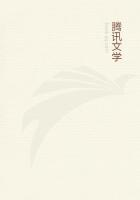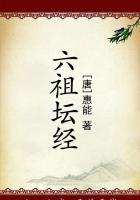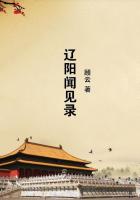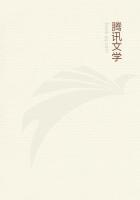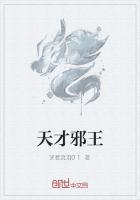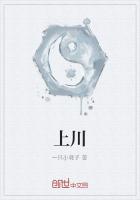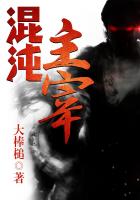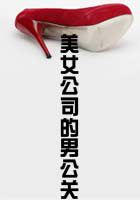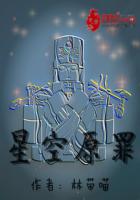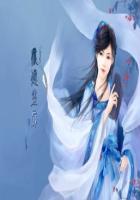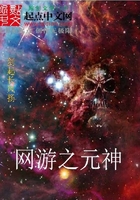As we came to the monastery we left the automobile and dipped into the labyrinth of narrow alleyways until at last we were before the greatest temple of Urga with the Tibetan walls and windows and its pretentious Chinese roof. A single lantern burned at the entrance.
The heavy gate with the bronze and iron trimmings was shut. When the General struck the big brass gong hanging by the gate, frightened monks began running up from all directions and, seeing the "General Baron," fell to the earth in fear of raising their heads.
"Get up," said the Baron, "and let us into the Temple!"The inside was like that of all Lama temples, the same multi-colored flags with the prayers, symbolic signs and the images of holy saints; the big bands of silk cloth hanging from the ceiling;the images of the gods and goddesses. On both sides of the approach to the altar were the low red benches for the Lamas and choir. On the altar small lamps threw their rays on the gold and silver vessels and candlesticks. Behind it hung a heavy yellow silk curtain with Tibetan inscriptions. The Lamas drew the curtain aside. Out of the dim light from the flickering lamps gradually appeared the great gilded statue of Buddha seated in the Golden Lotus. The face of the god was indifferent and calm with only a soft gleam of light animating it. On either side he was guarded by many thousands of lesser Buddhas brought by the faithful as offerings in prayer. The Baron struck the gong to attract Great Buddha's attention to his prayer and threw a handful of coins into the large bronze bowl. And then this scion of crusaders who had read all the philosophers of the West, closed his eyes, placed his hands together before his face and prayed. I noticed a black rosary on his left wrist. He prayed about ten minutes. Afterwards he led me to the other end of the monastery and, during our passage, said to me:
"I do not like this temple. It is new, erected by the Lamas when the Living Buddha became blind. I do not find on the face of the golden Buddha either tears, hopes, distress or thanks of the people. They have not yet had time to leave these traces on the face of the god. We shall go now to the old Shrine of Prophecies."This was a small building, blackened with age and resembling a tower with a plain round roof. The doors stood open. At both sides of the door were prayer wheels ready to be spun; over it a slab of copper with the signs of the zodiac. Inside two monks, who were intoning the sacred sutras, did not lift their eyes as we entered. The General approached them and said:
"Cast the dice for the number of my days!"
The priests brought two bowls with many dice therein and rolled them out on their low table. The Baron looked and reckoned with them the sum before he spoke:
"One hundred thirty! Again one hundred thirty!"Approaching the altar carrying an ancient stone statue of Buddha brought all the way from India, he again prayed. As day dawned, we wandered out through the monastery, visited all the temples and shrines, the museum of the medical school, the astrological tower and then the court where the Bandi and young Lamas have their daily morning wrestling exercises. In other places the Lamas were practising with the bow and arrow. Some of the higher Lamas feasted us with hot mutton, tea and wild onions. After we returned to the yurta I tried to sleep but in vain. Too many different questions were troubling me. "Where am I? In what epoch am Iliving?" I knew not but I dimly felt the unseen touch of some great idea, some enormous plan, some indescribable human woe.
After our noon meal the General said he wanted to introduce me to the Living Buddha. It is so difficult to secure audience with the Living Buddha that I was very glad to have this opportunity offered me. Our auto soon drew up at the gate of the red and white striped wall surrounding the palace of the god. Two hundred Lamas in yellow and red robes rushed to greet the arriving "Chiang Chun,"General, with the low-toned, respectful whisper "Khan! God of War!" As a regiment of formal ushers they led us to a spacious great hall softened by its semi-darkness. Heavy carved doors opened to the interior parts of the palace. In the depths of the hall stood a dais with the throne covered with yellow silk cushions. The back of the throne was red inside a gold framing; at either side stood yellow silk screens set in highly ornamented frames of black Chinese wood; while against the walls at either side of the throne stood glass cases filled with varied objects from China, Japan, India and Russia. I noticed also among them a pair of exquisite Marquis and Marquises in the fine porcelain of Sevres. Before the throne stood a long, low table at which eight noble Mongols were seated, their chairman, a highly esteemed old man with a clever, energetic face and with large penetrating eyes.
His appearance reminded me of the authentic wooden images of the Buddhist holymen with eyes of precious stones which I saw at the Tokyo Imperial Museum in the department devoted to Buddhism, where the Japanese show the ancient statues of Amida, Daunichi-Buddha, the Goddess Kwannon and the jolly old Hotei.
This man was the Hutuktu Jahantsi, Chairman of the Mongolian Council of Ministers, and honored and revered far beyond the bournes of Mongolia. The others were the Ministers--Khans and the Highest Princes of Khalkha. Jahantsi Hutuktu invited Baron Ungern to the place at his side, while they brought in a European chair for me. Baron Ungern announced to the Council of Ministers through an interpreter that he would leave Mongolia in a few days and urged them to protect the freedom won for the lands inhabited by the successors of Jenghiz Khan, whose soul still lives and calls upon the Mongols to become anew a powerful people and reunite again into one great Mid-Asiatic State all the Asian kingdoms he had ruled.

